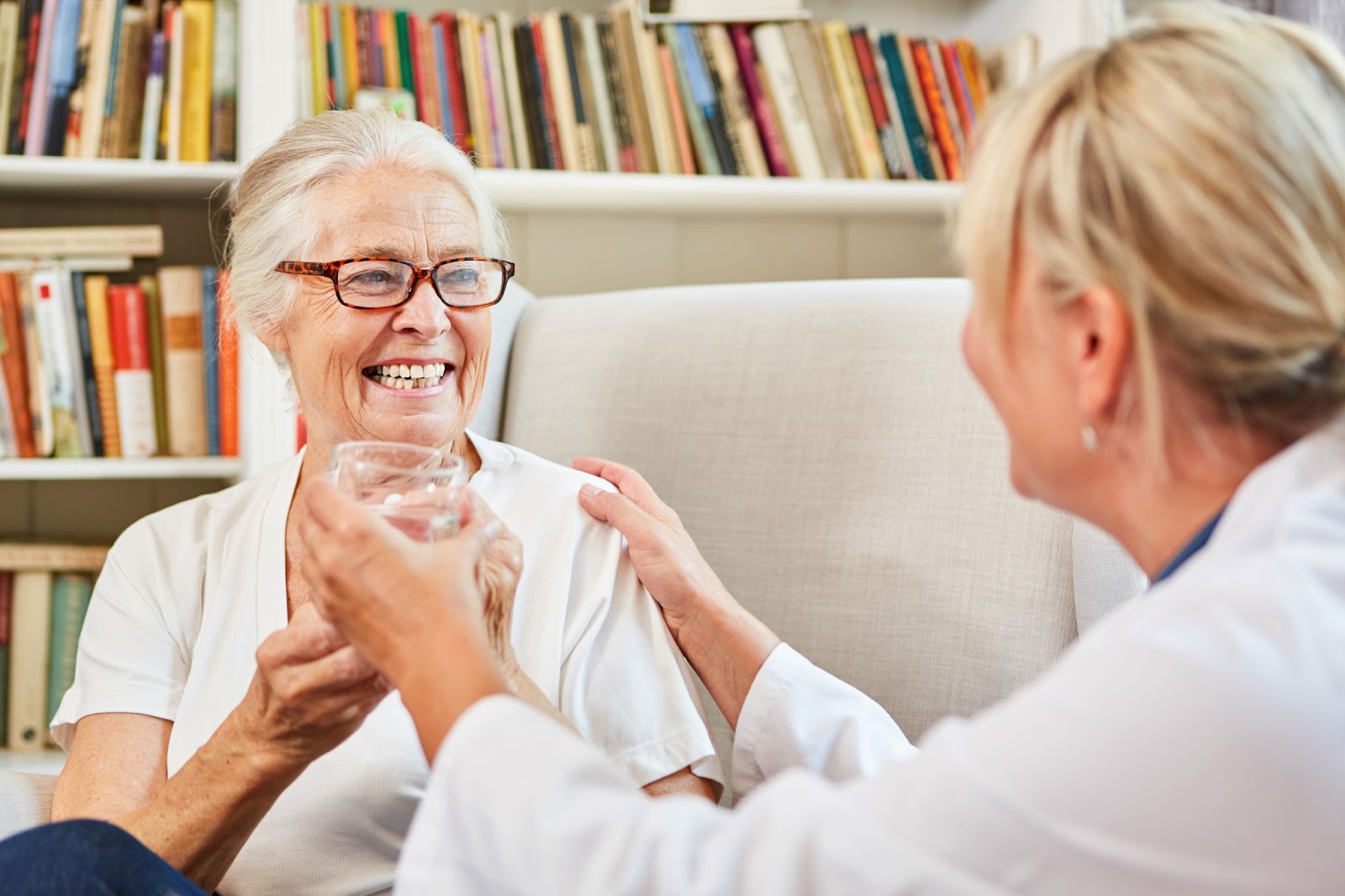
Top Hydration Tips For The Elderly
Proper hydration is essential for people of all ages, but it’s especially important for the elderly. As we age, our bodies become less efficient at retaining fluids, which can lead to headaches, constipation, fatigue, lethargy, or even more serious conditions like kidney failure. That is why it is so important to practice proper hydration.
So if you are looking for hydration tips for an elderly loved one or for yourself, we’ve got you covered. Today, we will discuss why hydration is imperative to your overall health and share the best ways to stay hydrated at any age.
Why Hydration Matters
There is no question that water is the most essential nutrient in the body–after all, a person can only survive a few days without it. But did you know that there is a lot more to hydration than simply water?
When you take a sip of water, the liquid travels to your intestines and eventually transfers from the intestinal lining into your cells through the bloodstream.
More than half of the total water in our body is in our lymphatic system and cells. Yet, there are many people who still struggle to stay hydrated, despite drinking plenty of water. This is because cells, in particular, need enough H2O to function fully and optimally–specifically the hydrogen molecules. So if a person is not taking steps to hydrate themselves, their cells may not have the ability to absorb the water they need to function properly.
As we get older, it becomes more difficult for our bodies to move water to the inside of our cells. This can lead to an increase in oxidative compounds that can cause inflammation, other symptoms, or dehydration. In the next section, we will review the best hydration tips for the elderly.
Hydration Tips For The Elderly
As we mentioned, hydration is something that everyone should prioritize, but it is even more important as we get older. Here are the top hydration tips for the elderly:
- Drink Plenty of Liquids
Water is the best and most natural way to stay hydrated (but remember, water on its own is not enough for hydration). Elderly people should drink at least 8-10 cups of water every day to stay hydrated. Try incorporating electrolytes in the form of sports drinks, bone broth, or other hydrating powders.
- Eat Water-Rich Foods
Fruits and vegetables are excellent sources of water, and many of them contain additional nutrients that are essential for maintaining good health. Elderly people should incorporate hydrating foods like watermelon, cucumber, celery, and lettuce into their diet as another effective way to stay hydrated.
- Drink Low-Sugar Beverages
Many popular beverages are high in sugar, which can lead to dehydration. Elderly people should avoid sugary drinks like soda, sweetened tea, and fruit juices. Instead, they should drink low-sugar beverages like water, herbal tea, and unsweetened coconut water.
- Use Hydration Apps and Reminders
As we age, our sense of thirst may become less reliable, which can lead to dehydration. Elderly people can use hydration apps and reminders on their smartphones to remind them to drink water throughout the day. Also, in-home caregivers will keep a hydration schedule and prompt them when it is time to hydrate.
- Convenient Hydration
When it comes to staying hydrated, it’s important to make it as convenient as possible for elderly loved ones. For example, keep a refillable water bottle near them at all times.
- Monitor Medication Side Effects
Many medications can cause dehydration as a side effect. Elderly people should talk to their doctor or pharmacist to understand if any of their medications can cause dehydration. If a medication is causing dehydration, they can work with their healthcare provider to adjust the dosage or find an alternative medication.
Takeaway
Hydration is crucial for our overall health and well-being because water is involved in nearly every bodily function. Water helps regulate body temperature, aids in digestion, transports nutrients throughout the body, lubricates joints, and flushes toxins out of the body.
Ensuring that we are properly hydrated can help us feel more energetic, improve our cognitive function, and support our overall health and well-being. That is why it is critical to make sure that our elderly loved ones stay hydrated.



